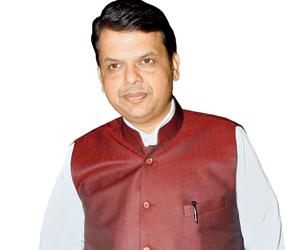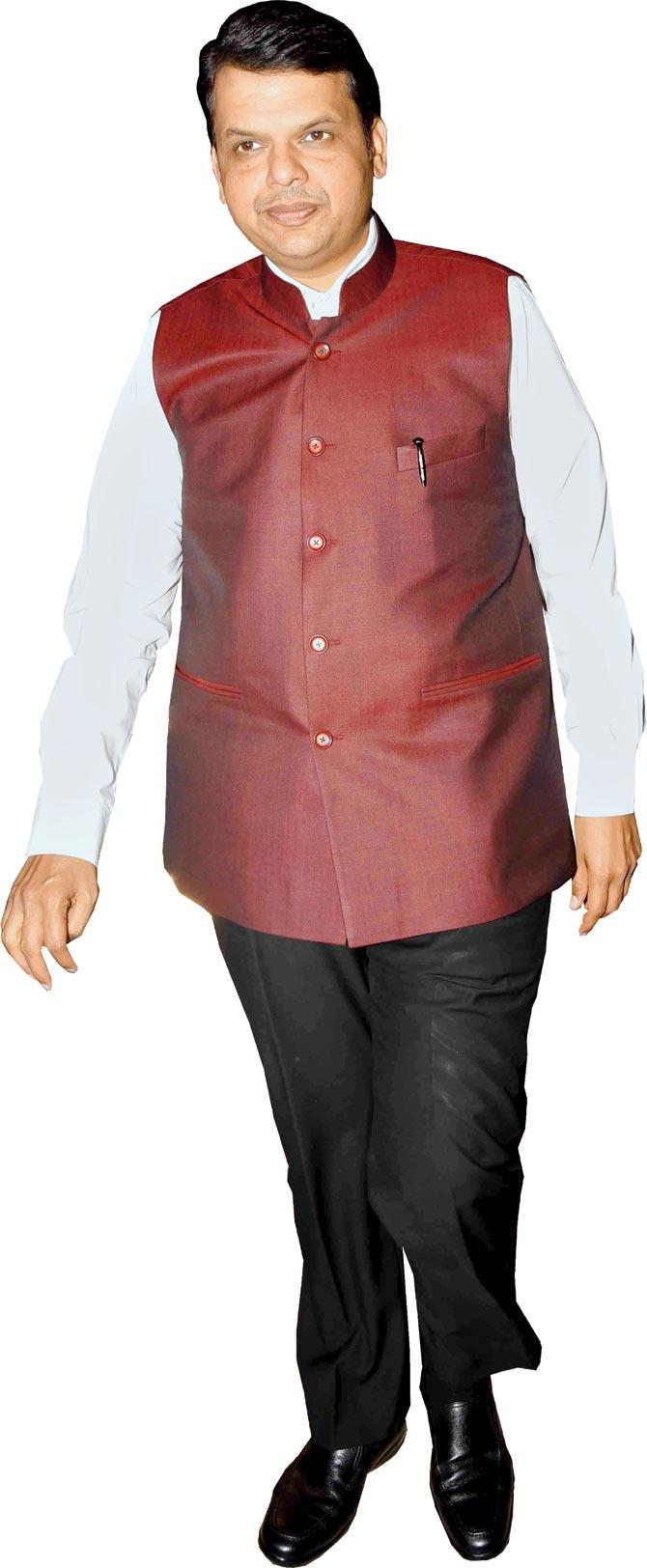Chief Minister Devendra Fadnavis seeks to allay fear among his legislators about how rural Gujarat turned its anger against the BJP

Chief Minister Devendra Fadnavis doesn't see the Gujarat effect impacting his and BJP's fate in Maharashtra. Many of his legislators are worried over the changing political course with increasing support to the Congress and unrest in rural regions, but Fadnavis believes his government has become more stable with a win in Gujarat.

Devendra Fadnavis
ADVERTISEMENT
With his confidence resting on an increased vote share of his party in Gujarat and BJP's good show in successive local body and village panchayat elections in Maharashtra, he allayed fears of the party performing poorly in the next Lok Sabha and Assembly polls, especially in rural Maharashtra, just because in rural Gujarat voters have disowned BJP. Like Gujarat, Maharashtra politics too revolves around rural, agrarian, economic and socio-political issues, such as agitation for caste reservations and polarisation of major communities. These issues are expected to become rallying points in the Opposition's campaign.
Poll analysis
"BJP has always been a number one party here. However, some people (in the Opposition) expected a turnaround because of the atmosphere created in Gujarat. But they should know that we have been winning here since 2016. We are winning where we never won before. We have maximum mayors, sarpanch (in villages) and local body presidents," Fadnavis said. He added that Congress has been the preferred party in rural Gujarat in the past three elections, but in the recent election, BJP reduced the gap considerably. "This time, the difference was of just 1%. In Maharashtra, there will be no problem. The Opposition has no strength whatsoever. They walk through four districts in so-called protest marches and then claim support of the entire state. Our protest marches were much bigger when we were in Opposition. "One must consider that BJP gained about 50 per cent vote share (Gujarat and other states). This is historic. We have got 9 per cent more votes than Congress. This victory has made our government in Maharashtra more stable," he said.
Opposition parties expect to maintain their pace and steadfast attack on the BJP government before they face Lok Sabha and Assembly elections next year. Fadnavis said the Opposition's enthusiasm was misplaced and based on wrong notions. What sets Maharashtra politics apart from Gujarat is the political line-up. Gujarat has a bipolar party system in electoral field, whereas Maharashtra has four major stakeholders. Fadnavis said winning against three parties — Shiv Sena, Congress and NCP — was an achievement in itself. "All other parties are against us and yet we have been beating them here. People vote for the BJP as well as the Sena, but they are not mentally prepared to vote for Congress and NCP," he added, underlining BJP's strength in Maharashtra.
In Gujarat, the Patel community played a significant role in reducing BJP's seats over the unfulfilled demand for reservation; here, a politically strong Maratha community is all set to make its long-pending demand for quota in education and jobs a rallying point ahead of the Lok Sabha and Assembly polls. But what brings BJP big relief is that Marathas don't have a leader like Hardik Patel. The BJP has made several attempts to weaken the Maratha agitation by splitting the leadership. It will again be up to the Congress and NCP, if the two form an alliance, to use Marathas as an effective political tool.
Drawing parallels
Like Gujarat, one prominent community's agitation for quota has made other castes and communities raise similar demands. It would be interesting to see how this polarisation works for the ruling party and Opposition. Agrarian crisis is yet another serious concern that the BJP has been facing ever since it came to power in Maharashtra. Discontent is simmering in rural and semi-urban areas, where farmer families dominate the voting population. Delay in implementing a loan waiver scheme, failure in controlling falling prices of farm produce and increasing incidents of farm suicides have turned into political issues that need government's prompt intervention. Demonetisation and GST were among the highlights of campaigning in Gujarat. These may find a place in Maharashtra if they continue to affect people even in 2019.
Alliances again?
Though unlike Gujarat, where a two-party set-up is in place for decades, Maharashtra has a four-party structure, in which the BJP, Congress, Sena and NCP form the basic line-up, the two states have identical issues that decide their political discourse. In the Lok Sabha, the BJP and Sena were in a pact, while the Congress-NCP too contested as an alliance. However, respective alliances broke ahead of the 2014 Assembly polls, making it a four-way fight. The Congress under Rahul Gandhi was smart enough to join hands with Patidar organisation and leaders of other communities that felt ignored by the BJP government.
Despite being disappointed with its own leaders, who did not deliver much to benefit their community, most Marathas in Maharashtra are likely to have a tacit understanding with the Congress and NCP to ensure BJP's defeat, if the Fadnavis government doesn't fulfil their demand. The rest are expected get split between the BJP and Sena, and that, in a true sense, will pose yet another challenge for the ruling party. Muslims, who had drifted towards community-specific parties, contributed significantly to Congress' victory in local body elections in Maharashtra. Another major vote bank of Dalits has rarely supported one party in the recent past, and it will again boil down to the negotiating skills of major parties for getting as many splinter Dalit groups to side with them.
Sources said an alliance in Lok Sabha polls may not be hard to come by owing to a previous arrangement. But reaching a seat-sharing formula for the Assembly elections will remain a bone of contention, as the BJP won't agree to vacate those seats where it defeated sitting Sena MLAs. Fadnavis did not comment on any forthcoming pre-poll alliance but maintained that relations between the BJP and Sena were much better. When asked if he would induct Sena's bête noire Narayan Rane in the legislature and Cabinet against Uddhav Thackeray's wishes, Fadnavis said he did not expect the Sena to oppose because Rane would share BJP's quota. But ex-minister Eknath Khadse, who quit last year over corruption charges, would not return to Cabinet anytime soon, he added. "Rane will definitely be rehabilitated. Rane and Khadse are assets to us."
Download the new mid-day Android and iOS apps to get updates on all the latest and trending stories on the go
 Subscribe today by clicking the link and stay updated with the latest news!" Click here!
Subscribe today by clicking the link and stay updated with the latest news!" Click here!







